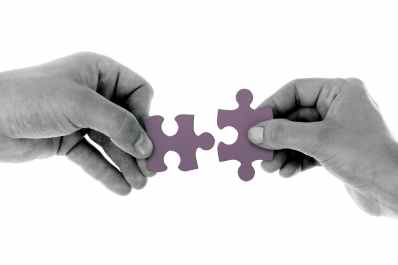Communication is such a basic activity it seems fair to assume we do it well. After all we have been communicating our entire life. Yet somehow our communication, far too often, doesn’t work as well as we’d like. Understanding why tends to be a mystery for many; alternative the blame is placed on the other. After all we know the importance of listening, asking, saying what we mean, paying attention to non-verbal communication and we’ve often focus on developing these skills. Still communication stuff ups happen, leaving us wondering what is going on.
Because of these communication stumbles some of us ask why? What are we missing? The truth is many of us do not know five powerful communication secrets. These secrets make a significant difference to understanding and experiencing communication. These secrets reveal why communication often doesn’t go to plan.
The first communication secret is that there are ‘Two Approaches to Communicating’. The first and most common approach to communicating is ‘Power Over’ the second is ‘Power With’. These two approaches are oppositional; they are like oil and water. They just don’t mix.

Those who communicate using ‘Power Over’, have high expectations of having to battle and fight or submit in a world of hierarchical power and control. Where possible they want power over others, if necessary they will submit to those they perceive as having greater power. ‘Power Overs’ will create the dynamic with ease. They often view this as a matter of respect. Respect me, do as I say, I have more power than thee.
In opposition those who live by the ‘Power With’ approach think in terms of mutuality, cooperation and best interests for all. Often ‘Power With’ individuals struggle in communication and have no understanding as to why, until they grasp this awareness. When communicating worth ‘Power Overs’ efforts at cooperation fail. ‘Power Overs’ don’t ‘Power With’.
It is very important to learn to distinguish between ‘Power Overs’ and ‘Power With’ communicators, if you wish to reduce communication mix-ups.
The next secret is ‘Self-Connection.’ This extends on the ‘Power Over’ need to control. One of the most effective ways to control others is to disconnect them from themselves. The process of disconnection begins at an early age; with invalidation statements such as: ‘Don’t do that.’ ‘Don’t cry.’ ‘Don’t think that.’
When this process, of invalidation, is consistently repeated, we disconnect from our true self, our desires and needs. Instead of being connected to our self we become who we believe we are ‘suppose’ to be. This disconnection leaves us feeling confused, and or empty, no longer able to know what we really want or mean. This tends to result in a lack of clarity in communication.

You need to be connected with your self to know what you want and in turn be able to communicate with clarity, thereby reducing communication mix-ups.
The third secret ‘Self-Care’ is the counter to disconnection. It is about being willing and able to recognising your own needs and desires so you can act on them and look after your self. From a Respectful perspective this is about being able to care for your self while respecting the needs of others. It taps directly into your humanness, compassion, and belonging. It enables strong solid connection with your self and I n turn others.
Self-Care is the foundation to being connected and cooperative.
Secret number four ‘Everything around us Influences us’. We are not an island, we are influence by everything around us, even when we intend not to be. Every interaction influences our actions. If our environment inspires and nourishes we become more humane, kind and cooperative. If our environment irritates, or creates fear or anxiety we move into ‘survival’ mode ruling all our actions regardless of our or others best interest.
For quality communication it is critical we have an environment that strengthens our better self.
The final secret is our ‘Right of Choice’. We all have the right of self-determination, to decide who we want to be, how we’ll behaviour and manage that by choosing our environments, creating them to enhance our ability to be who we want to be to the very best of our ability. We all have the right to build our own Personal Power that is grounded in our self-determination and right of choice.

To reduce communication stuff ups, it is important to recognise your right to be who you are, your right of choice. In turn to use this awareness to create an environment for your self that supports you to nourish yourself, strengthen your inner connection and thus connection with others as well as your sense of belonging. When this is done with respect, using ‘Power With’ communication and appropriate self-protective strategies you’ll experience noticeably less miscommunication in your life.
Communicate powerfully by using ‘Power With’ and respect,
Learn to break the spell of disconnection, supported with
Self Care to build your
Personal power and claim your right of choice
To select and surround yourself with what brings out the best in you.









